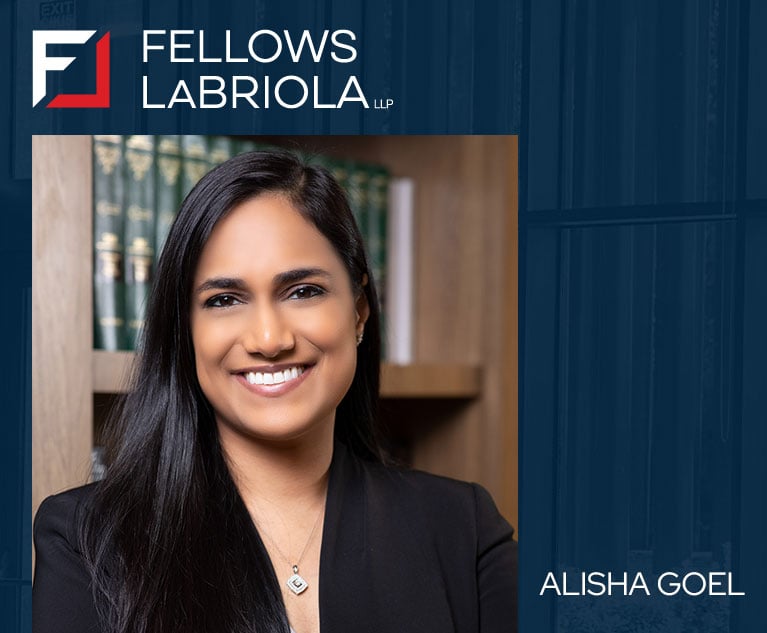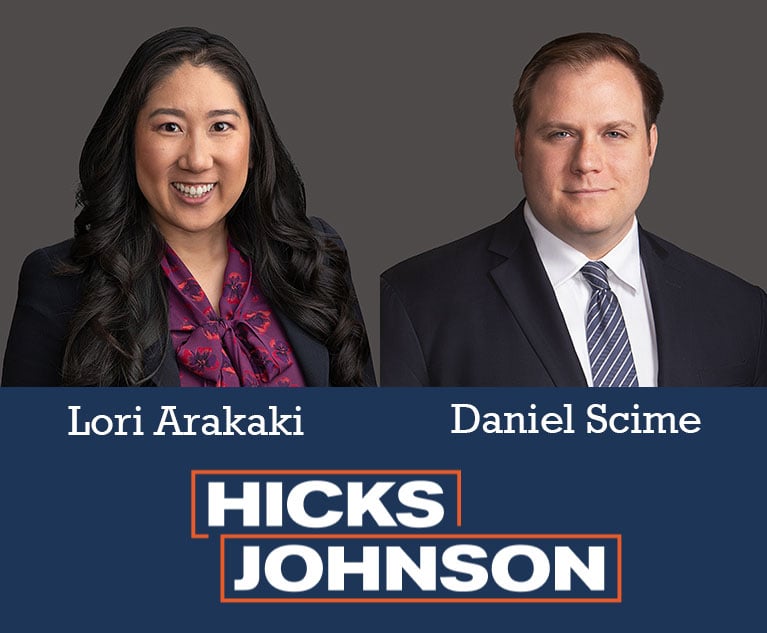30. Are New Law Firm Cultures Bridging The Generation Gap?
Generation Gap Series Part 4: Culture Law firm cultures have become more associate-friendly, and young associates have embraced this and found it easier to assimilate.
May 24, 2024 at 11:46 AM
3 minute read
The original version of this story was published on Lean Adviser
Who has to fit in with whom? Is it on the young associate to come to terms with the culture of the firm and try their best to assimilate? Or is the onus on law firms to modify their culture to make themselves more appealing and accommodating to young associates?
Once upon a time this question would generate diametrically opposing views depending on who you asked. The historic view of law firm leaders was that young associates are lucky to have the chance to work here, and only those who are strong enough and flexible enough to hack it will survive. In that bygone era, associates would disagree profoundly, much the same way that every young generation thinks they know better than their elders. But they'd suck it up and perpetuate the pattern when they are in leadership positions. After all, they went through it and now it's the new associates' turn.
Then things changed, and the first place they changed was the associates themselves. The current generation have different goals, values and aspirations. Law firms have realized that just paying them more to work the same way — and passing the cost on to already unhappy clients — is not the answer. It's not a money issue, it's deeper.
To the current generation, work-life balance doesn't mean "I'm only alive outside work." That's not why they joined the profession. These young associates want to be alive at work, not just after work. They want to spend their work-time using their talent and creativity to solve client problems. Happily, this is precisely what clients want from their lawyers.
This attitude shift has been a big driver toward a new common ground. But there are other factors, including everything we've discussed in this mini-series: work-from-home, talent wars, communication challenges and mental health. Driven by all these forces, law firm cultures have become more associate-friendly, and young associates have embraced this and found it easier to assimilate.
Yet there are still obstacles. Indeed, some of the catalysts for cultural change created problems of their own. Remote working is the most obvious example. As much as young associates love the flexibility of working from home, there is no substitute for sitting at the partner's elbow in the office, on airplanes and at client meetings.
Intriguingly, the reverse is also true. Partners are now learning modern-era skills from associates. With the rise in demand for legal project management, we're seeing that young associates are often the first to lean into lean. This gives them a vital new role on assignments — which they want — and which enlightened partners are keen for them to have. What follows is reverse mentoring, where partners learn from young associates, all of which is integral to a positive law firm culture.
In closing, let's mention the ordinary day-to-day interactions. It's obvious, but sometimes overlooked, that to interact meaningfully, partners and associates have to be in the office on the same day. Then it comes down to culture and mindset. There isn't a partner alive who's never had their concentration broken by an associate with a dumb question. But that's when the firm's culture is key . When that associate peaks their head into the partner's doorway and asks the question, a good partner takes a breath and remembers that the firm where associates are afraid to ask questions is nurturing ill-equipped lawyers and malpractice suits.
NOT FOR REPRINT
© 2025 ALM Global, LLC, All Rights Reserved. Request academic re-use from www.copyright.com. All other uses, submit a request to [email protected]. For more information visit Asset & Logo Licensing.
You Might Like
View All
Former Federal Judge Christopher Conner Joins Saxton & Stump as Attorney and Shareholder
2 minute read
Fellows LaBriola LLP is Pleased to Announce that Alisha Goel Has Become Associated with The Firm
1 minute read
Longtime AOC Director Glenn Grant to Step Down, Assignment Judge to Take Over
4 minute read
Hicks Johnson Promotes Lori Arakaki and Daniel Scime to Firm Partnership
2 minute readTrending Stories
- 1Meet the New President of NY's Association of Trial Court Jurists
- 2Lawyers' Phones Are Ringing: What Should Employers Do If ICE Raids Their Business?
- 3Freshfields Hires Ex-SEC Corporate Finance Director in Silicon Valley
- 4Meet the SEC's New Interim General Counsel
- 5Will Madrid Become the Next Arbitration Hub?
Who Got The Work
J. Brugh Lower of Gibbons has entered an appearance for industrial equipment supplier Devco Corporation in a pending trademark infringement lawsuit. The suit, accusing the defendant of selling knock-off Graco products, was filed Dec. 18 in New Jersey District Court by Rivkin Radler on behalf of Graco Inc. and Graco Minnesota. The case, assigned to U.S. District Judge Zahid N. Quraishi, is 3:24-cv-11294, Graco Inc. et al v. Devco Corporation.
Who Got The Work
Rebecca Maller-Stein and Kent A. Yalowitz of Arnold & Porter Kaye Scholer have entered their appearances for Hanaco Venture Capital and its executives, Lior Prosor and David Frankel, in a pending securities lawsuit. The action, filed on Dec. 24 in New York Southern District Court by Zell, Aron & Co. on behalf of Goldeneye Advisors, accuses the defendants of negligently and fraudulently managing the plaintiff's $1 million investment. The case, assigned to U.S. District Judge Vernon S. Broderick, is 1:24-cv-09918, Goldeneye Advisors, LLC v. Hanaco Venture Capital, Ltd. et al.
Who Got The Work
Attorneys from A&O Shearman has stepped in as defense counsel for Toronto-Dominion Bank and other defendants in a pending securities class action. The suit, filed Dec. 11 in New York Southern District Court by Bleichmar Fonti & Auld, accuses the defendants of concealing the bank's 'pervasive' deficiencies in regards to its compliance with the Bank Secrecy Act and the quality of its anti-money laundering controls. The case, assigned to U.S. District Judge Arun Subramanian, is 1:24-cv-09445, Gonzalez v. The Toronto-Dominion Bank et al.
Who Got The Work
Crown Castle International, a Pennsylvania company providing shared communications infrastructure, has turned to Luke D. Wolf of Gordon Rees Scully Mansukhani to fend off a pending breach-of-contract lawsuit. The court action, filed Nov. 25 in Michigan Eastern District Court by Hooper Hathaway PC on behalf of The Town Residences LLC, accuses Crown Castle of failing to transfer approximately $30,000 in utility payments from T-Mobile in breach of a roof-top lease and assignment agreement. The case, assigned to U.S. District Judge Susan K. Declercq, is 2:24-cv-13131, The Town Residences LLC v. T-Mobile US, Inc. et al.
Who Got The Work
Wilfred P. Coronato and Daniel M. Schwartz of McCarter & English have stepped in as defense counsel to Electrolux Home Products Inc. in a pending product liability lawsuit. The court action, filed Nov. 26 in New York Eastern District Court by Poulos Lopiccolo PC and Nagel Rice LLP on behalf of David Stern, alleges that the defendant's refrigerators’ drawers and shelving repeatedly break and fall apart within months after purchase. The case, assigned to U.S. District Judge Joan M. Azrack, is 2:24-cv-08204, Stern v. Electrolux Home Products, Inc.
Featured Firms
Law Offices of Gary Martin Hays & Associates, P.C.
(470) 294-1674
Law Offices of Mark E. Salomone
(857) 444-6468
Smith & Hassler
(713) 739-1250








